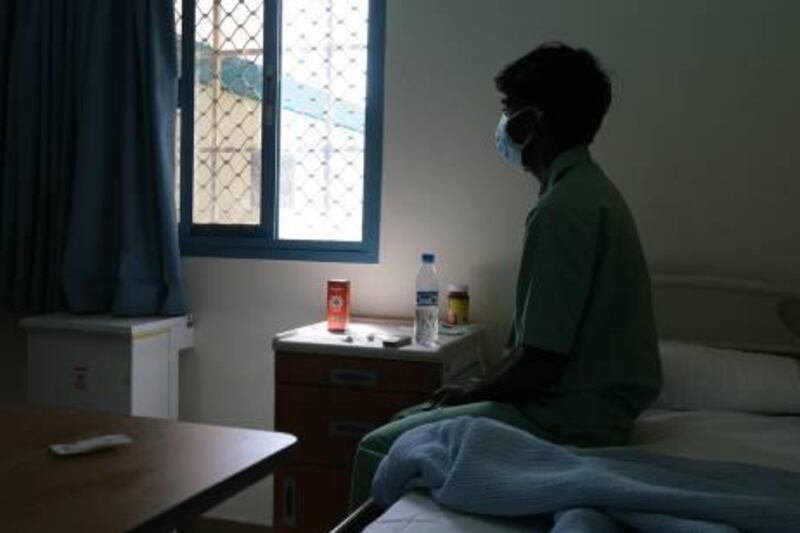Misdiagnosis and inadequate treatment of pulmonary tuberculosis among labourers have contributed to a rise in the prevalence of the disease, medical experts say.
Construction site workers coming from India, Pakistan, Bangladesh and Nepal are particularly affected, said Dr Khaliq Raza Khan, of the Al Sanaiya Medical Clinic in Dubai.
Many of the labourers who first experience symptoms are misdiagnosed by doctors in their home countries, he said.
"These labourers experience cough and cold problems and go to their local doctor," he said. "They receive treatment for the cold, and when the [symptoms] go away, both the doctor and the patient are satisfied."
However, the infection itself goes unnoticed, Dr Khan said. This leaves the patient capable of transmitting the disease to others.
Another problem is the three years between visa renewals when a worker can catch the infection at any time, especially if he travels back home for a holiday, Dr Khan said.
Overcrowded, unsanitary conditions in labour camps and poor nourishment make it easier to spread the infection, said Dr Peter George, of the Jebel Ali Corporate Clinic. "It's a risk for other workers," he said. "They all live in very crowded conditions.
"So if the person himself does not seek treatment, the other people in his room then come forward because they don't want to get infected."
Dr George said any worker diagnosed with the infection was immediately sent to Rashid Hospital in Dubai for treatment, and then was usually sent back to their home country.
Recently reported figures show that tuberculosis cases have more than doubled between 2009 and 2010.
Most construction and contracting firms, including the Arabian Construction Co, Target Engineering Construction Company and the Dubai Contracting Company, provide on-site, first-aid facilities. The companies also hire their own male nurses and doctors who must be certified by either the Dubai Health Authority, the Health Authority - Abu Dhabi, or the Ministry of Health.
A male nurse with a Dubai contractor said that if he suspected a worker had pulmonary tuberculosis the employee would be isolated and his symptoms would be treated. If the symptoms worsened or did not go away, only then would the individual be reported to the hospital.
"We check to see if there's phlegm and we advise the worker to take certain precautions, such as to close his mouth while he's coughing," he said. "We send him to a separate room and give him treatment. If it does not work, then we tell the doctor."
Another nurse from the same firm said he advised workers "to drink lots of fluids" if experiencing symptoms related to pulmonary tuberculosis.
An infected individual does not always exhibit the symptoms, said Dr Jonathan E Golub from the centres for tuberculosis research at Johns Hopkins University in Baltimore, US.
It is estimated that nearly one-third of the world population is unknowingly infected with a non-active strain of the bacteria, he said. But a weakening of the immune system can trigger the disease at any point.
"Anything that causes the immune system to diminish could change the bacteria from a dormant to active state," he said.
Dr Ibrahim Al Qadi, the director of preventive medicine at the Ministry of Health, said the ministry was not looking to test people on visit visas or at earlier intervals between the periods of visa renewal.
"The individual will eventually develop the symptoms and go to the hospital, and the hospital is obliged to inform us, " Dr Al Qadi said. "If it is discovered he has any serious diseases, he will be deported."





